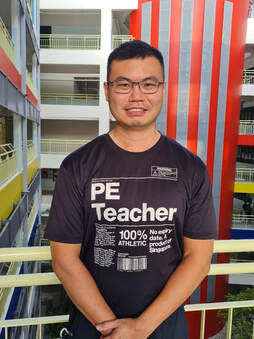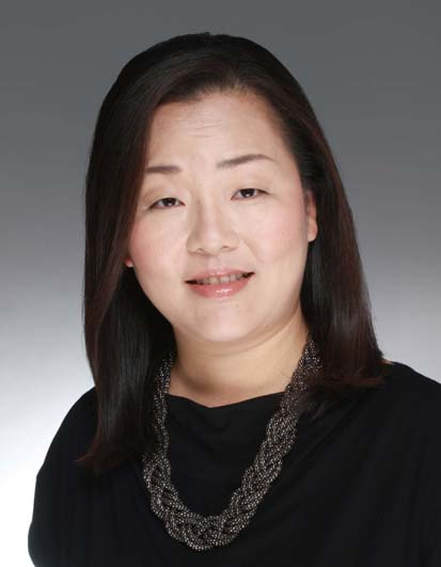|
Francis is a Physical Education teacher at Outram Secondary School. He is also the recipient of the President’s Award for Teachers 2020. Francis was instrumental in transforming the school’s water polo team, leading them to the finals in the interschool league in 2011, after their last one 19 years ago.
Trained as a Teacher for Special Needs at NIE, Francis suspected he could be dyslexic and was formally diagnosed six months ago. With the diagnosis, things are coming together for him. He now understands his strengths better and what works for those with special education needs. Working with his fellow teachers, the school implemented study groups where students help each other to learn. This set up has yielded impressive results as the students grew in self-confidence which translated to academic achievements. How did you first find out that you are dyslexic? I was trained as a Teacher for Special Needs. As a lead teacher, I mentor teachers in the school in special education needs. As I delve deeper into this area, I began suspecting I could be dyslexic. I remember reading a book on the strengths of neurodivergent children and saw some of the traits in myself. Six months ago, I went through an assessment at the Dyslexia Association of Singapore which confirmed my suspicion. I wanted a diagnosis so that from a dyslexic's perspective, I can share why some of the teaching pedagogies such as collaborative learning actually works. What was life like as a student prior to your dyslexia diagnosis? I knew I was a slower learner compared to my peers. I started picking up reading only in secondary school and languages were not my strength. My teachers used to call me lazy and my handwriting was untidy. But I did notice that I learn faster than others in certain areas. For example, I was quick at grasping concepts and can see 3D images easily. My secondary school had an after-school study programme where students were divided into smaller groups to help one another learn. That was very helpful for me. I was always stressed about keeping up with my peers in class. Having a group of friends helping each other made the learning environment less pressurising. As I grew older, I developed lower self-esteem. I started reading self-help books as I wanted to build a positive growth mindset. Each time I tried something and failed, I told myself it was another chance for me to try again. As I build up my confidence, I started getting better at what I do, such as playing sports and my studies in the university. What inspired you to become a teacher? I believe that if more teachers form study groups and help the students build self-confidence, more of them would enjoy studying and do better in life. That influenced my decision to be a teacher. As a teacher, I now understand why many students are inattentive in class and I tried different methods to engage them. For example, I formed study groups in my form class and in the water polo CCA I am in charge of. I also encourage the use of peer coaching and collaborative learning with other teachers. This has helped many teachers engage with more students. In my school, more teachers are now using collaborative learning as the main teaching pedagogy. Students are given a problem to solve at the start of the lesson. Through inquiry-based learning, students with special education needs learn better. Tapping on their strengths and helping each other increase their self-efficacy. I am sure you came across many students who struggle with different learning challenges. What words of encouragement do you have for them? As a teacher of 15 years, I see many strengths in students with special education needs. While most of us focus on their failures or weaknesses, they should be recognised for their strengths. Very often, a person with ADHD finds it difficult to focus on boring lectures. They need something that challenges them and I have seen many ADHD students who are good at solving challenging science problems. The slightest of sound could be magnified and bother a person with ASD, but this same trait allows him to spot the small details. Although dyslexics take a longer time to read, we ended up having better understanding and could grasp the concepts. Those students that I know of who are dyslexic had a knack for linking the different concepts together. They definitely make very good peer teachers. Does having a diagnosis make any difference to the way you look at your learning difficulties and is there any positive outcome arising from the diagnosis? As I was diagnosed only six months ago, there hasn’t been many changes. My personal transformation has been a growth mindset and self-belief. I think people who are neurodiverse need to stay positive. It is easy to see ourselves as being inferior to others and give up on ourselves. After my diagnosis, I have a better understanding of the traits I possess. I can see my ability in connecting the different teaching pedagogies and applying them effectively in the classroom. Some parents are still reluctant to send their children for diagnosis for fear of labelling them and putting them at a disadvantage. Now that you are an adult and looking back at your younger days, what are your thoughts on this? Since my diagnosis, I have been able to explain to parents the benefits of being neurodiverse. The world needs people who are innovative, able to see the big picture and are self-directed learners. These are traits commonly present in neurodiverse people. When parents heard this, they are more incline to send their children for assessments. I also share about my own learning difficulties and my strengths with my students. After hearing my experiences, more students are starting to realise their strengths and this helps to boost their confidence. How do you perceive dyslexia now that you are an adult, and do you see dyslexia more as a learning difference rather than a limitation? It is definitely a learning difference. Yes, I do struggle in some areas, but with the help of technology, things are much easier for me compared to before. I have also overcome my limitations by using different strategies such as asking my colleagues for help.
0 Comments
Leave a Reply. |
Categories
All
Christina TanChristina has a Diploma in Disability Studies and is a licensed Davis Facilitator. |
|
|
Professional services described as Davis™, including Davis™ Dyslexia Correction, Davis™ Symbol Mastery, Davis™ Orientation Counseling, Davis™ Attention Mastery, Davis™ Math Mastery, and Davis™ Reading Program for Young Learners may only be provided by persons who are trained and licensed as Davis Facilitators or Specialists by Davis Dyslexia Association International. |



 RSS Feed
RSS Feed

